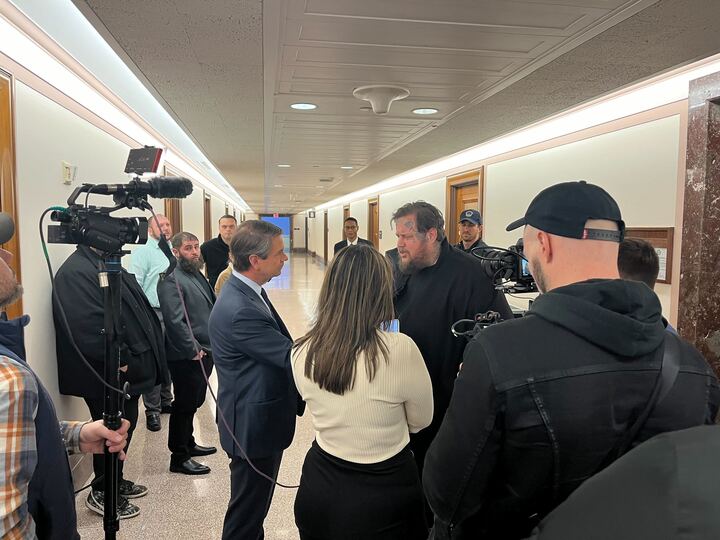WASHINGTON – Country music artist and rapper Jason “Jelly Roll” DeFord urged lawmakers on Thursday to pass legislation to help combat the fentanyl crisis that is gripping the country.
The Grammy nominee was arrested at 14 years old and spent the following years moving through juvenile centers and prisons after being charged with possession with intent to sell and aggravated robbery. Now, he’s using his experience to call attention to the addiction crisis.
“I was a part of the problem. I am here now standing as a man that wants to be part of the solution,” DeFord said.
Jelly Roll’s comments came during a hearing held by the U.S. Banking, Housing, and Urban Affairs Committee where they discussed current drug policy, the spread of fentanyl and the FEND Off Fentanyl Act, a bipartisan policy. It aims to address the fentanyl crisis by implementing anti-money laundering measures and monitoring fentanyl-related suspicious transactions.
According to the U.S. State Department, fentanyl and other synthetic opioids led to more than 107,000 overdose deaths in 2022. Of those, sixty-eight percent involved fentanyl, according to the CDC.
Sen. Sherrod Brown (D-Ohio), chairman of the committee and co-author of the act, said that it is the committee’s “chance to show the people we serve that we can work together, we can put partisanship aside, we can take action on things that actually matter to their lives.”
In his opening remarks, Sen. Tim Scott (R-S.C.) blamed the fentanyl crisis on a “wide open” southern border.
“America is facing the worst border crisis in our nation’s history,” Scott said.
Sen. John Kennedy (R-La.) agreed but said that, although the border is an issue, fentanyl-related policy should be equally focused on drug dealers. Kennedy displayed a chart comparing the amount of fentanyl needed to be charged with a federal crime compared to the amount that is necessary to get charged for other drugs. “We punish other drugs less severely than we do the most powerful drug, fentanyl,” he said. “What you allow, gentleman, is what will continue.”
To launder their money, drug dealers and manufacturers have started using Chinese Money Laundering Organizations (CMLOs) and cryptocurrency, according to Christopher J. Urban, a former DEA agent.
Urban told the committee that CMLOs are independent money launderers in the U.S. who sell laundered U.S. dollars to brokers overseas whose clients want to use the U.S. dollar in America. This model, Urban said, allows cartels and drug manufacturers to launder money faster and with less risk compared to other forms of laundering.
The FEND Act has the potential to hinder this form of money laundering. CMLOs and other laundering organizations keep detailed transaction data that can be breached by law enforcement with the aid of the FEND Act, Urban said.
Cryptocurrency also plays a major role in laundering money from the sale of fentanyl. The DEA’s 2018 threat assessment states that cryptocurrency “offers a relatively secure method for moving illicit proceeds.”
“Crypto has changed the game by allowing criminals to move boatloads of money instantaneously and nearly anonymously,” said Sen. Elizabeth Warren (D-Mass.). “Holes in our anti-money laundering laws have given drug dealers a backdoor to move their dirty fentanyl money around and that back door is wide open.”
DeFord said he wanted to use his platform to remind committee members that fentanyl isn’t just a policy issue. Unable to vote because of his felon status, he felt that his perspective was fitting because fentanyl should be a nonpartisan issue.
“Fentanyl transcends partisanship and ideology,” DeFord said, “I encourage y’all to not only pass this bill, but I encourage you to bring it up where it matters– at the kitchen table.”


